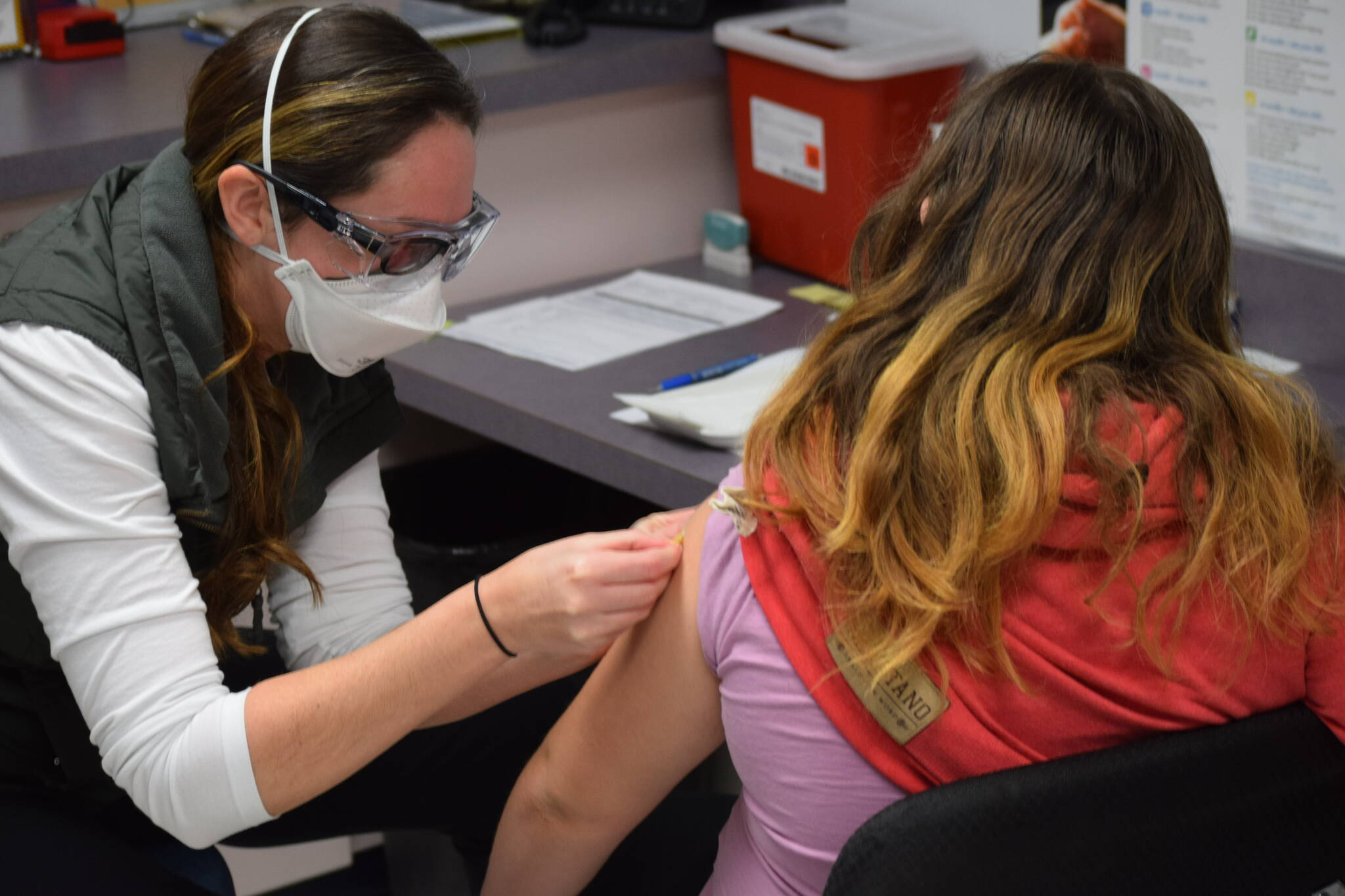KENAI — Flu and respiratory syncytial virus have both seen a steep decline in Alaska, health officials said on a recent Public Health ECHO, held via Zoom and live streamed to Facebook.
State epidemiologist Dr. Joe McLaughlin called it “good news” across the respiratory disease front.
COVID-19
Globally, McLaughlin said that COVID-19 cases are largely on a downward trajectory. In the United States and the European Union, cases have been mostly flat, while in the Western Pacific, including South Korea and Japan, he said cases have seen a dramatic decrease.
McLaughlin said nationwide COVID-19 variant prevalence hasn’t changed much since an update he gave at the last ECHO in January. Omicron subvariant XBB.1.5 continues to be seen in an increasing number of cases, and McLaughlin said that it is the predominant strain circulating in the United States.
Though COVID cases in Alaska have been seeing variability, McLaughlin said most regions are staying mostly flat.
According to data released each week by the state, weekly statewide cases increased from around 300 at Christmas to nearly 800 at the end of January. This week, the state reported 677. In that same time, cases in the Kenai Peninsula Borough stayed between 20 and 40, though this week the state reported 54 cases in the region.
McLaughlin said he didn’t anticipate an increase or decrease in the number of hospitalizations in Alaska from COVID-19 in the near future.
The federal COVID-19 public health emergency is expected to end on May 11, McLaughlin said. He said the immediate effects of that will be the end of a requirement for private insurance to cover COVID-19 testing, and the reporting of negative tests will no longer be required.
McLaughlin said that though the emergency is set to end, that will have no effect on Federal Drug Administration emergency use authorizations for vaccines, treatments and tests for COVID-19.
“Reducing the public health impact of COVID-19 remains a priority nationally and here in Alaska,” he said.
Influenza
A steep decline in cases of influenza reported in January’s ECHO has continued, McLaughlin said.
McLaughlin said that in the Southern Hemisphere, a large spike in influenza A was followed by a spike of influenza B.
“At this point, everybody is just waiting to see if influenza B is going to start to take a foothold,” he said.
Though the decrease in cases is continuing in Alaska, McLaughlin said he would be surprised if another spike doesn’t eventually happen.
“We may not be out of the woods with influenza yet,” he said.
RSV
A sharp decrease in RSV cases is continuing to be seen in Region 10, which includes Alaska and the northwest United States, as well as nationally, McLaughlin said.
To find a COVID-19 or influenza vaccine provider, visit vaccines.gov.
• Reach reporter Jake Dye at jacob.dye@peninsulaclarion.com.

